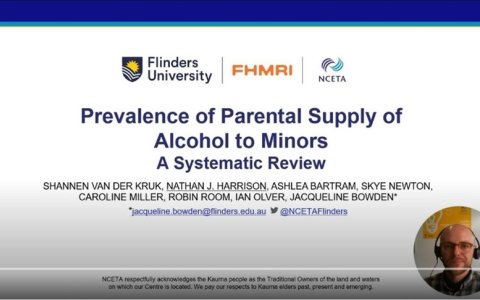Prevalence of parental supply of alcohol to minors
Parental supply of alcohol to minors (i.e. those under the legal drinking age) is often perceived by parents as protective against harms from drinking, despite evidence linking it with adverse alcohol-related outcomes. This systematic review describes the prevalence of parental supply of alcohol, as reported in the international literature.
Among 58 articles included in narrative synthesis from 29 unique datasets, there was substantial variation in the definition and measurement of parental supply of alcohol. Overall prevalence rates ranged from 7.0 to 60.0% for minor-report samples, and from 24.0 to 48.0% for parent-report samples. Data indicate that parental supply prevalence is generally proportionately higher for older minors or later-stage students, for girls, and has increased over time among minors who report drinking.
Literature on the prevalence of parental supply of alcohol is robust in quantity but inconsistent in quality and reported prevalence. Current prevalence data are predominantly from high-income Western countries only, and are needed from a wider range of countries. Greater consistency in defining and measuring parental supply is needed to better inform health promotion initiatives aimed at increasing parents’ awareness.
Parents are one of the most common sources of alcohol for underage drinkers, and should be a key target for interventions to reduce harms from underage alcohol use. Health promotion interventions targeting parental supply of alcohol should target groups with higher identified rates of supply and can use prevalence data to reinforce messages that most parents do not supply alcohol.
Read the full article here.
You can also watch our 2-minute summary video here!
This research was a collaboration between researchers at NCETA, the South Australian Health and Medical Research Institute (SAHMRI), University of Adelaide, La Trobe University, Stockholm University, and the University of Notre Dame Australia.
It was supported by NHMRC GNT1157069, and produced with the financial and other support of Cancer Council SA’s Beat Cancer Project on behalf of its donors and the State Government of South Australia through the Department of Health.











